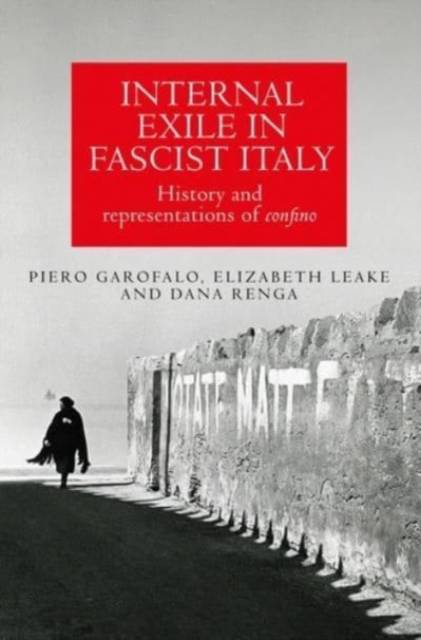
- Afhalen na 1 uur in een winkel met voorraad
- Gratis thuislevering in België vanaf € 30
- Ruim aanbod met 7 miljoen producten
- Afhalen na 1 uur in een winkel met voorraad
- Gratis thuislevering in België vanaf € 30
- Ruim aanbod met 7 miljoen producten
Zoeken
Internal Exile in Fascist Italy
History and Representations of Confino
Piero Garofalo, Elizabeth Leake, Dana Renga
Paperback | Engels
€ 59,95
+ 119 punten
Omschrijving
This study offers a clear, concise introduction to the Fascist-era practice, know as confino, of exiling antifascist dissidents to parts of Italy far from the dissidents' homes, often on islands or in tiny inland villages. The book is organised in two sections. Part one provides a case study of the political colony on the island of Lipari and a historical overview of internal exile. Part two focuses on representations of confinement in literature and film. It examines the varieties of self-expression (e.g. memoirs, letters and literature) used by prisoners to describe their experiences, investigates how filmmakers interpret these events, places and people, and explores how film portrays the repression of homosexuality. A timely examination of the birthplace of European federalism, the book also contributes to our understanding of the legacy of confinement from both national and European perspectives.
Specificaties
Betrokkenen
- Auteur(s):
- Uitgeverij:
Inhoud
- Aantal bladzijden:
- 232
- Taal:
- Engels
Eigenschappen
- Productcode (EAN):
- 9781526163875
- Verschijningsdatum:
- 28/06/2022
- Uitvoering:
- Paperback
- Formaat:
- Trade paperback (VS)
- Afmetingen:
- 156 mm x 234 mm
- Gewicht:
- 331 g

Alleen bij Standaard Boekhandel
+ 119 punten op je klantenkaart van Standaard Boekhandel
Beoordelingen
We publiceren alleen reviews die voldoen aan de voorwaarden voor reviews. Bekijk onze voorwaarden voor reviews.








